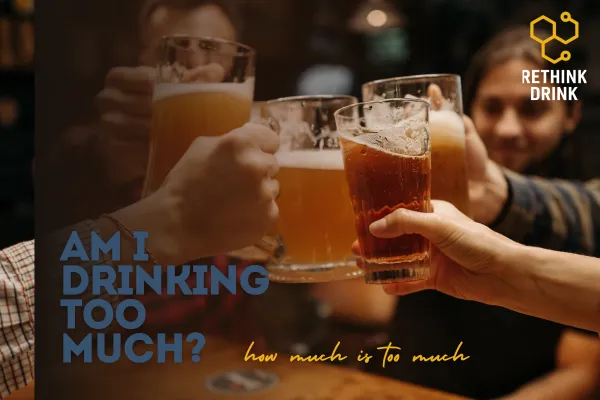
Am I Drinking Too Much? A Closer Look at 14 Units and Beyond
Key Takeaways
Drinking 14 units a week is the UK low-risk guideline, but even “low risk” doesn’t equal “no risk”.
Evaluating your drinking habits can help reveal early signs of problematic use.
Testing your ability to go a week alcohol-free can offer insight into your level of control.
The Sinclair Method supports gradual, controlled reduction in alcohol without relying on willpower alone.
Dual therapy support and coaching dramatically increase success and long-term outcomes.
How Much Alcohol Is Too Much?
It’s a common concern: Am I drinking too much? And with good reason. While 14 units per week is the current UK guideline for low-risk drinking, what really matters is how alcohol fits into your lifestyle and mental health.
To help visualise what 14 units looks like, here are some rough equivalents:
One large glass (175ml) of wine at 13% ABV = 2.3 units
One pint of standard beer (568ml, 4% ABV) = 2.3 units
One single measure of spirits (25ml, 40% ABV) = 1 unit
So if you're having two glasses of wine a night or several pints over the weekend, you're likely reaching or exceeding that limit—often without realising it.
Am I in Control of My Drinking?
Ask yourself a few simple but telling questions:
Do I struggle to stop once I start drinking?
Do I rely on alcohol to relax, socialise, or get through stress?
Have I attempted to cut back without success?
Does the thought of going a week alcohol-free cause discomfort or anxiety?
These aren’t just passing curiosities—they're early red flags that your relationship with alcohol may be less under control than it seems.
A common test is to try and go one week without drinking. If that sounds difficult or you’ve tried before and couldn’t follow through, it's time to take a closer look.
Recognising Habitual Drinking Patterns
Drinking doesn’t have to be heavy to become problematic. Often, it’s the habitual nature of our drinking that reveals deeper concerns.
Common scenarios include:
Stress triggers – “I need a drink to unwind after work.”
Reward-based behaviour – “I’ve had a long day; I deserve this glass of wine.”
Social norms or pressure – “Everyone else is drinking; I don’t want to miss out.”
These patterns can quietly entrench themselves into daily life, making it hard to imagine evenings or weekends without alcohol. That’s when it becomes more than just a habit—it becomes dependency.
A Modern Way to Break the Cycle
Here’s the good news: there’s a proven, medical approach to changing your relationship with alcohol—without going cold turkey or facing painful withdrawals.
Enter The Sinclair Method (TSM). It uses a non-addictive medication called Naltrexone, taken before drinking, to gradually retrain your brain’s response to alcohol. Over time, this technique leads to something called pharmacological extinction—a major reduction in cravings and desire.
TSM is ideal for people who want to regain control over their drinking, whether that means moderation or total abstinence. And the best part? You can do it without the shame, fear, or pressure so common in traditional recovery routes.
Support Turns Hope into Results
It’s important to note that medication alone isn’t the whole picture. Real success with TSM often comes from structured, ongoing support—something we offer through coaching, tracking tools, and a compassionate, non-judgemental approach.
We believe in empowering people to change their lives on their own terms. As one of our clients shared:
“I didn’t even realise how much alcohol was dimming my personality. Now that I’m drinking less, I feel clearer, lighter, more me.”
Read more about how others have reclaimed their lives through our approach in the blog: Be You Again – How The Sinclair Method Helps Reclaim Your Life.
Wondering If It’s Time for a Change?
If you’re asking, Am I drinking too much? — that question alone is worth exploring. You're not alone in wondering, and you're certainly not stuck. Whether you want to cut back or quit entirely, you don’t have to do it alone.
Book a confidential free screening call today and take the first step toward regaining clarity, confidence, and control. Your relationship with alcohol doesn’t define you. But how you choose to change it just might.

